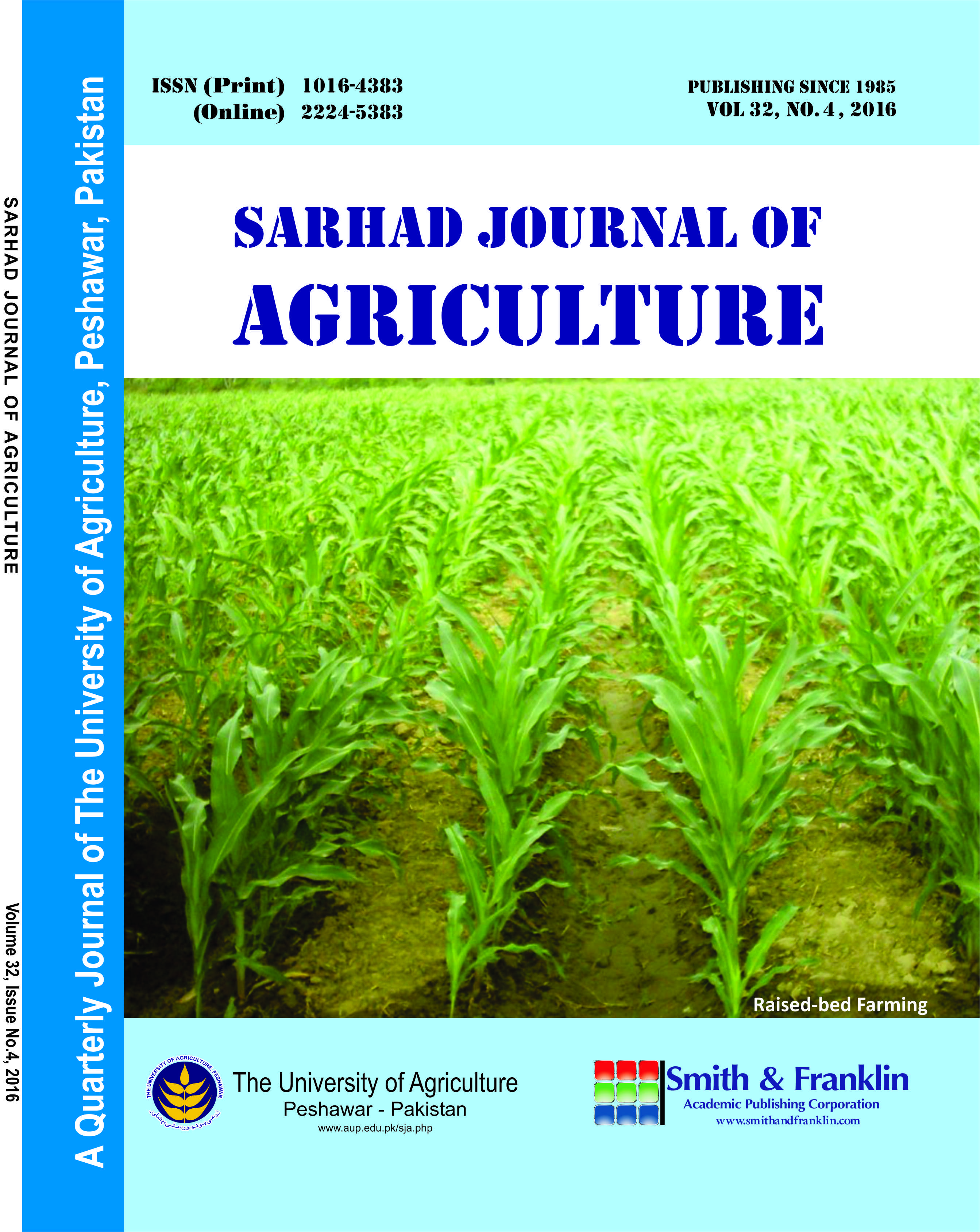ABSTRACT
Northern leaf blight (NCLB) of maize is most infectious foliar disease in Himalayan region of the Asia, caused by fungus Exerohillum turcicum. We evaluated resistant genotypes against NCLB under agro-climatic condition of Rawalakot and assessed the yield loss due to impact of NCLB. Maize plants were artificially inoculated at four to six leaf stages. Thirty genotypes were screened in first field trail in June 2016. Genotypes had significant differences for NCLB severity and reactions and were classified into resistant, susceptible and moderate categories on the basis of 0-5 disease severity scale. The percent disease incidence ranged from 20-60% and area under disease progressive curve (AUDPC) 22-362dsu (Development stage unit). On the basis of disease rating scale and pathological traits, it was reported that three parental genotypes Karamat-Bar-25, SZP-13200, NCEV-1530-11 had lowest values for all pathological traits and severity rating of 5R, 5R and 10R and marked as highly resistant (R) genotypes, whereas three parental genotypes Soan-3, Ghuari-122, Kissan-60 were evaluated as highly susceptible (S) within germplasm and had highest values for pathological traits with severity rating of 90S, 90S and 80S respectively. In second field trail (June 2017) crosses were made between selected parental genotypes in order to get F1 progeny and evaluation of F1 progenies and their parents was done in June 2018 for morpho-pathological traits to assess the impact of NCLB on yield loss and yield related attributes. Results showed that area under disease progressive curve ranged 10-402dsu while disease incidence ranged 25 to 77% and showed negative correlation with grain yield and yield traits. Parents and their F1 progenies indicated that there is improvement in new recombinants of selected parents for yield enhancement. The present study revealed the effectiveness of selection and hybridization for enhancement of resistance to NCLB and improvement of yield and yield associated traits and their utilization in future breeding program.
To share on other social networks, click on any
share button. What are these?







